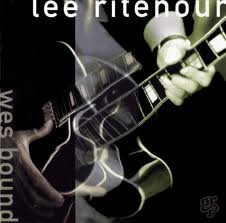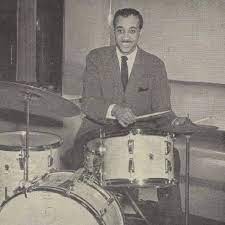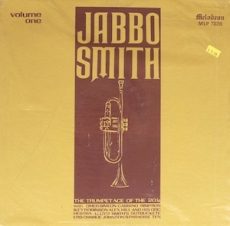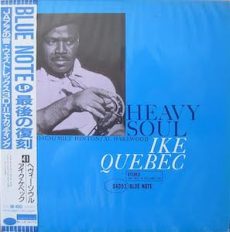
Daily Dose Of Jazz…
Lee Mack Ritenour was born January 11, 1952 in Los Angeles, California and at the age of eight he started playing guitar. Four years later decided on a career in music and by 16 he was playing on his first recording session with the Mamas & the Papas. He developed a love for jazz, influenced by guitarist Wes Montgomery. A year later he worked with Lena Horne and Tony Bennett, then studied classical guitar at the University of Southern California.
His solo career began with his debut album First Course in 1976 which was a jazz-funk sound of the 1970s. Lee followed with Captain Fingers, The Captain’s Journey, and Feel the Night to close out the decade. The Eighties saw Ritenour adding pop elements to his music, which got him charting so he stayed the course. During this period he added vocals to his music, recruiting such artists as Djavan, Bill Champlin, Eric Tagg, Patti Austin, Ivan Lins, Phil Perry, João Bosco, Kate Markowitz, Maxi Priest, Lisa Fischer and Michael McDonald.
In 1988, his Brazilian influence came to the forefront on Festival, an album featuring his work on nylon-string guitar. He changed direction with his straight-ahead jazz album Stolen Moments which he recorded with saxophonist Ernie Watts, pianist Alan Broadbent, bassist John Patitucci, and drummer Harvey Mason.
Then 1991 had Ritenour and keyboardist Bob James forming the group Fourplay, where he stayed until 1997. He released the career retrospective Overtime in 2005. Smoke n’ Mirrors came out the next year with the debut of his thirteen-year-old son, Wesley, on drums.
Guitarist Lee Ritenour has recorded 34 albums, garnered 16 Grammy nominations, received one Grammy Award and has been a judge for the Independent Music Awards. He continues to explore, record, compose and perform.
More Posts: bandleader,guitar,history,instrumental,jazz,music

Three Wishes
When the Baroness approached Percy Brice to ask him what his three wishes would be if they could be granted, he told her the following:
- “Eternal life.”
- “Not to have any money at all. I’ll make out, y’know, as long as I’m living and playing.”
- “And that’s my third wish… to keep playing.”
More Posts: baroness,drums,history,instrumental,jazz,music,pannonica,three,wishes

Daily Dose Of Jazz…
Waymon Reed was born on January 10, 1940 in Fayetteville, North Carolina and attended the Eastman School of Music. He went on to play with trumpeter/saxophonist Ira Sullivan. Joining James Brown’s band from 1965 to 1969, he played on It’s a Man’s Man’s Man’s World.
Reed worked with the big bands of Frank Foster and Thad Jones-Mel Lewis. He became a member of the Count Basie Orchestra in 1969, staying until 1973. He returned to play with Basie again in 1977–78.
He married Sarah Vaughan and worked with her from 1978–80, but shortly afterwards they divorced. He played on B.B. King’s album There Must Be A Better World Somewhere in 1981. In 1977, Reed recorded his one album as leader, 46th and 8th, featuring tenor saxophonist Jimmy Forrest, pianist Tommy Flanagan, bassist Keter Betts and drummer Bobby Durham.
Trumpeter Waymon Reed, who was principally a bebop soloist, transitioned from cancer on November 25, 1983 in Nashville, Tennessee.
More Posts: bandleader,history,instrumental,jazz,music,trumpet

Daily Dose Of Jazz…
Walter Bishop Sr. was born on January 9, 1905 in Jamaica but emigrated to the United States prior to beginning his professional career. He settled with his family in the Sugar Hill district of the Harlem neighborhood of Upper Manhattan.
He played drums on recordings by pianist Alex Hill and trumpeter Jabbo Smith during the 1920s and 1930s. His song Swing, Brother, Swing was recorded by Billie Holiday with Count Basie, among other performers.
Other songs written by Bishop include Jack, You’re Dead, which was a #1 R&B hit in 1947 as recorded by Louis Jordan, The Stuff is Here (and It’s Mellow), and Bop! Goes My Heart, which was recorded by Frank Sinatra.
His song My Baby Likes to Bebop was recorded by Ella Fitzgerald, and by Nat “King” Cole with Johnny Mercer, and his calypso “Sex is a Misdemeanor” was recorded by Vanessa Rubin.
Drummer, composer and songwriter Walter Bishop Sr., the father of jazz pianist Walter Bishop Jr., transitioned one day before his 80th birthday on January 8, 1984.
More Posts: composer,drums,history,instrumental,jazz,music,songwriter

Requisites
Heavy Soul ~ Ike Quebec | By Eddie Carter
A few nights ago, I was thinking about my mom and reflecting on some of the records she loved to play while cooking dinner when my sister and I were younger. I listened to one of her favorite albums by tenor saxophonist Ike Quebec, which led me to this morning’s choice from the library. Heavy Soul (Blue Note BLP 4093/BST 84093) is a quartet date and the third of four records the label released in 1962. His bandmates on this record are Freddie Roach on organ, Milt Hinton on bass, and Al Harewood on drums. Their first appearance together was on an earlier release that year; It Might As Well Be Spring. My copy is the 1990 Toshiba-EMI Limited Japanese Stereo reissue sharing the original catalog number.
Side One kicks off with the first of three originals by Ike Quebec. Acquitted is a catchy tune that begins with a lively groove for the quartet’s theme. Ike kicks off the solos with a driving rhythm, and Freddie treats the listener to a zesty performance. The leader returns to share a few more thoughts preceding the ending theme, fading into nothingness. Just One More Chance by Sam Coslow and Arthur Johnston first appeared in the 1931 featurette, One More Chance. Quebec and company make an indelible impression on the melody, then the saxophonist leads off with a stylish performance. Freddie adds a deep sense of nostalgia in the second statement, leading to the tenor’s elegant conclusion.
Que’s Dilemma, also by Quebec, moves the beat upward for the saxophonist’s agile melody. He begins the song’s only solo with Milt and Al in the background, Freddie joins the festivities next, and Ike completes his invigorating statement into the closing chorus and disappearance. Brother, Can You Spare A Dime? by Jay Gorney and E.Y. Harburg poignantly gives a glimpse into the times during the Great Depression. The quartet presents the melody with a sad simplicity that serves as a springboard into Ike’s deeply affecting opening solo. The following presentation by Freddie is equally gentle and stunningly executed with Milt and Al’s assistance. Ike sums up the song’s story with a gorgeous reprise and finish.
Side Two gets underway with George, and Ira Gershwin’s, The Man I Love. The ensemble states the theme slowly; next, the tempo quickens for Ike to wail on the song’s only interpretation. The group slows the beat down for the closing chorus and finale. Ike’s third tune, Heavy Soul, is a down-home blues that commences with an introduction, first by Milt. Then, Ike, Al, and Freddie enter with subtly conceived statements to complete the theme. Ike draws an exceptionally tender tone from his tenor sax in the first presentation. Freddie maintains a therapeutic mood with one of his most relaxed performances. Milt has the last word and effectively walks toward the saxophonist’s ending theme, which disappears into oblivion.
I Want a Little Girl by Murray Mencher, and Billy Moll is a beautiful ballad that hasn’t been over-recorded. Ike and the rhythm section establish an affectionately exquisite theme, and he continues telling a sensitive story in the opening interpretation. Freddie emerges next with a delicately expressed reading, then Ike returns to add a heartfelt exclamation preceding the quartet’s return for the gentle climax. The album’s closing track, Nature Boy by Eden Ahbez, is a two-instrument conversation between tenor and bass. Ike creates an enchanting illustration on the opening and closing melody, and Milt provides supportive warmth and sensitivity into a charming finale. Alfred Lion produced the initial session, and Rudy Van Gelder was the recording engineer.
The reissue’s sound quality is fantastic, with a spacious soundstage that’s clear and detailed. Toshiba-EMI has also done an excellent job on the remastering, and the vinyl is quiet until the music begins. Ike Quebec was an accomplished dancer and pianist before taking up the tenor sax in his twenties. In 1940, his recording career began with the Barons of Rhythm, and he’s performed with Cab Calloway, Benny Carter, Roy Eldridge, Ella Fitzgerald, Coleman Hawkins, Hot Lips Page, and Trummy Young. Most of Ike’s discography as a leader and sideman is on Blue Note, and he also served as an arranger and talent scout for the label. He occasionally recorded during the fifties due to heroin addiction but began a comeback in 1959. Four years later, he lost his battle with lung cancer on January 16, 1963, at age forty-three.
If you’re in the mood for mellow tenor sax, I invite you to add Heavy Soul to your list the next time you are out vinyl shopping. It’s an excellent place to start discovering the music of Ike Quebec and a delightful album perfect for late-night listening or long drives with the windows down. The fast numbers crackle with excitement, and the slow tunes reveal the depths of Ike Quebec’s creative ingenuity, resulting in an easy choice for any jazz lover’s library that’s hard to beat!
~ It Might As Well Be Spring (Blue Note BLP 4105/BST 84105) – Source: Discogs.com ~ Nature Boy, The Man I Love – Source: JazzStandards.com ~ Ike Quebec, Brother, Can You Spare a Dime? – Source: Wikipedia.org ~ © 2022 by Edward Thomas Carter
More Posts: choice,classic,collectible,collector,history,instrumental,jazz,music,saxophone




